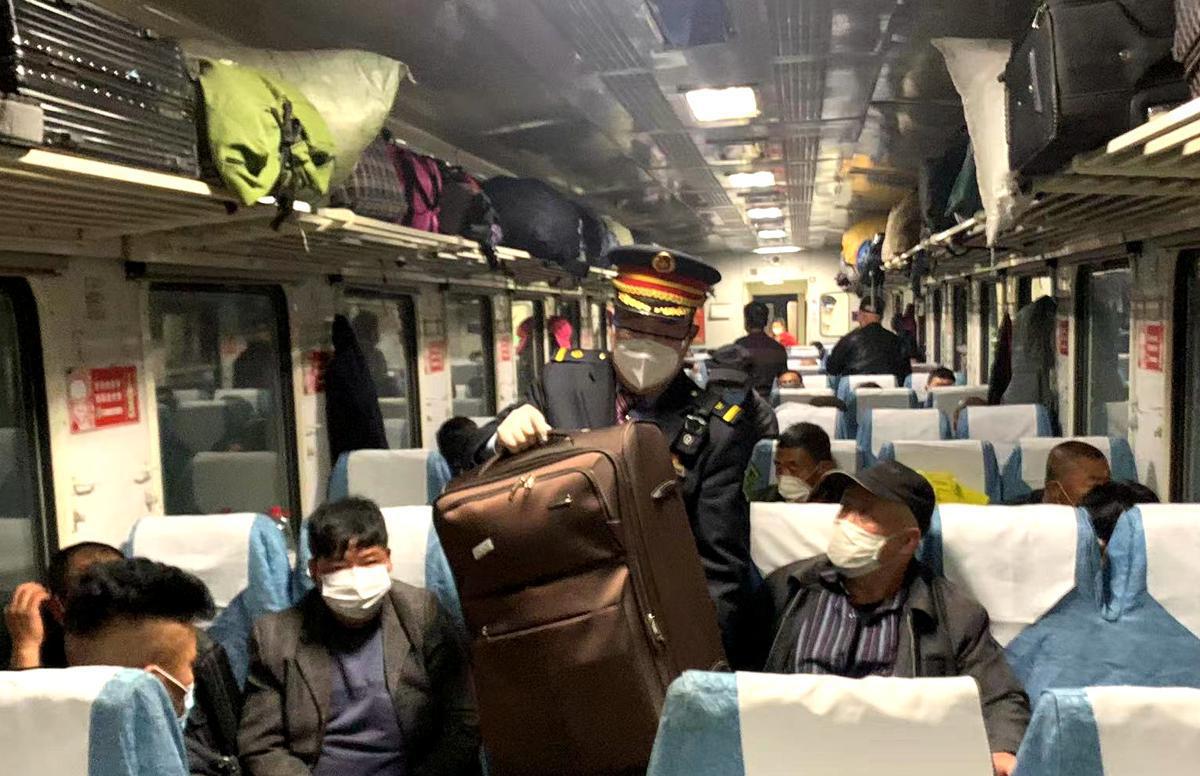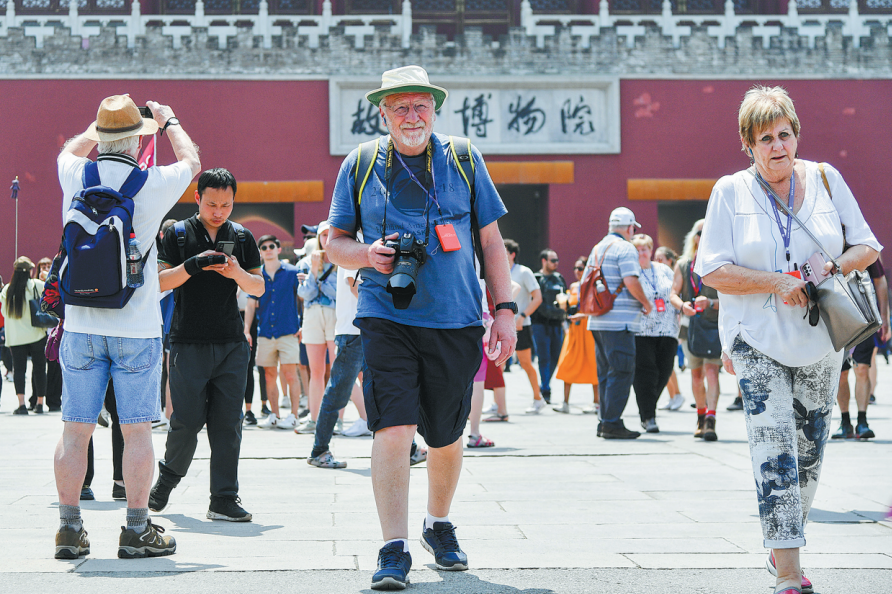Farmhands ready land for spring plowing
By ZHOU HUIYING in Harbin | CHINA DAILY | Updated: 2022-04-26 09:38

Shortly after stepping off train No 7065 upon arrival at Qianjin town, Heilongjiang province on Thursday morning, Yu Liang was hard at work in the fields of Qianjin Farm preparing the land for the forthcoming growing season.
The train passes several large farms such as Jiansanjiang, Qianjin, Qianfeng and Honghe in one of China's major rice production areas before arriving at its final destination-Fuyuan city.
Since there are not enough local farmhands to clear the fields and transplant rice seedlings, migrant workers come to the Sanjiang Plain every year.
Given the climate in Heilongjiang, the best time for transplanting the rice is from May 5 to 25 so as to ensure a good harvest.
Yu, 32, a farmer from the village of Jianmin, in Qing'an county, was among 100 migrant workers who took the train leaving Suihua Railway Station last Wednesday.
"I have come to the farm every spring since 2015," he said. "After completing land plowing around May 5, I will continue the work of transplanting rice seedlings until late May.
"My employer has promised me a daily wage of 600 yuan ($92), and I can make over 20,000 yuan by the time I go home, having earned a large part of my family's income," he added.
In 2000, China Railway Harbin Group introduced special trains to carry migrant workers from rural parts of Qiqihar and Suihua to the Sanjiang Plain during the rice transplantation season from May 5 to 25.
As of last year, the trains had transported over 1.7 million migrant workers, the group said.
"To make a rational and effective train schedule, we work with villages and towns to understand their travel schedules and destinations," said Liu Ming, deputy director of Suihua Railway Station's passenger transport division. "Notably, since 2018, the number of passengers has continued to drop due to increased mechanized agriculture."
Jiangchuan, a State-owned farm that is part of Beidahuang Agricultural Reclamation Group's Hongxinglong Co, has 20,000 hectares of arable land where rice is planted.
"We have nearly 7,000 agricultural machines, and our agricultural mechanization rate has reached 99 percent," said Wu Yugang, deputy general manager of Jiangchuan Co. "Before 2018, we needed 4,000 workers every year to plant rice seedlings. Around 3,400 of them are hired from areas outside the plain.
"This year, 2,500 will be hired to transplant rice seedlings, working in the areas machines can't reach," he said.
Deng Tenglong, 35, a farmer in Jiangchuan, said he had a good harvest last year thanks to the migrant workers. "The profit from my 64 hectares of rice farmland reached 30,000 yuan. I plan to hire 10 workers this year, and I expect another good harvest in the autumn."
With China still battling COVID-19 outbreaks, epidemic control and prevention measures are carefully adhered to.
"To ensure passengers' health and safety, we have launched measures like regular temperature monitoring and environment disinfection in the carriages," said Xu Jingyu, a conductor on train No 7065. "Personal hygiene materials-including masks and alcohol wipes-and some common drugs, are also stocked.
"We remind passengers to wear masks and inform them of epidemic prevention procedures," he said. "Moreover, we have collected some recruitment information and posted it in the carriages to help ensure a safe and bumper harvest."
























